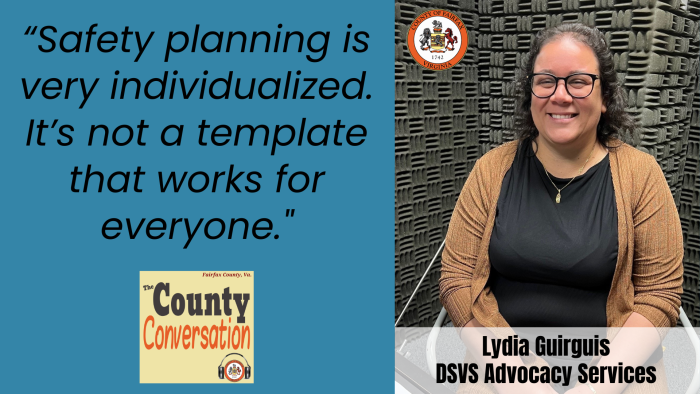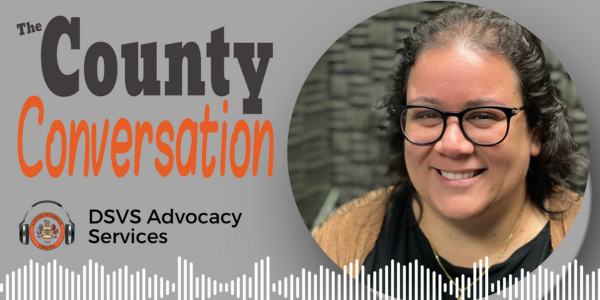Support Through the Court Process
Going to court can feel scary, especially for survivors of violence. Two advocates work at the courthouse to help people through civil cases like protective orders. They explain the process, provide emotional support during hearings, and work with sheriffs to ensure safe entry and exit from the building.
For criminal cases, the Victim Services Division of the Police Department typically supports survivors through the process. However, Advocacy Services staff can also attend hearings if they’re already working with someone. Advocates help with every detail, from transportation to safety planning.
“We talk to them about pre-court planning, how are you getting there? Where are you parking? Do you need a taxi? Can we find funding to get a taxi for you? Where are you going to be sitting? What if you run into the other person?” Guirguis explains.
Their main office at the Historical Courthouse serves as a safe meeting point, where staff can walk with survivors to court hearings and help them feel more secure throughout the process.
Safety Planning That Fits Each Person
Safety looks different for everyone. Some survivors may need help getting a protective order through the courts. Others might need emergency housing or help making their current home safer. The program even helps protect pets through the county’s Pet Haven program.
For people staying in their relationships, advocates can suggest safety measures like security cameras in common areas or storing important documents in a safe place. If someone plans to leave, advocates help create detailed exit plans, since leaving can be the most dangerous time.

Emergency Housing Options
The program partners with local shelters like Artemis House and Bethany House to help people find safe places to stay. When shelter space is limited, advocates get creative.
“We try to work with the person about what is their need,” Guirguis says. “Sometimes we work with individuals about relocating with family members or friends where the person who caused them harm doesn’t know where they live. We might help with Uber gift cards to get them somewhere three hours away.”
Community Support Makes a Difference
The program works with 16 partner organizations through the Domestic Violence Action Center. They maintain a small food and supplies pantry for survivors who had to leave everything behind. Community members can help by donating gift cards for groceries, transportation or safety items like phones and security cameras.
Survivors, loved ones or community members wanting to help can reach Advocacy Services Monday through Friday, 8 a.m. to 7 p.m. at 703-246-4573 or email dvac@fairfaxcounty.gov. Anyone in immediate danger should call 9-1-1.
The County Conversation Podcast
The “County Conversation” is a podcast featuring employees and subject matter experts from the Fairfax County Government discussing programs, services and items of interest to residents of Fairfax County. Listen to past episodes of “County Conversation.” To find other county podcasts, visit www.fairfaxcounty.gov/podcasts.





 SIGN UP FOR DAILY EMAIL HEADLINES
SIGN UP FOR DAILY EMAIL HEADLINES